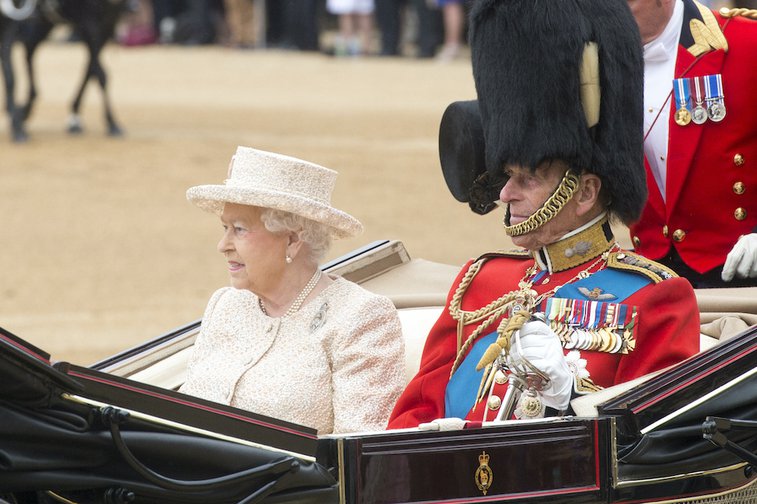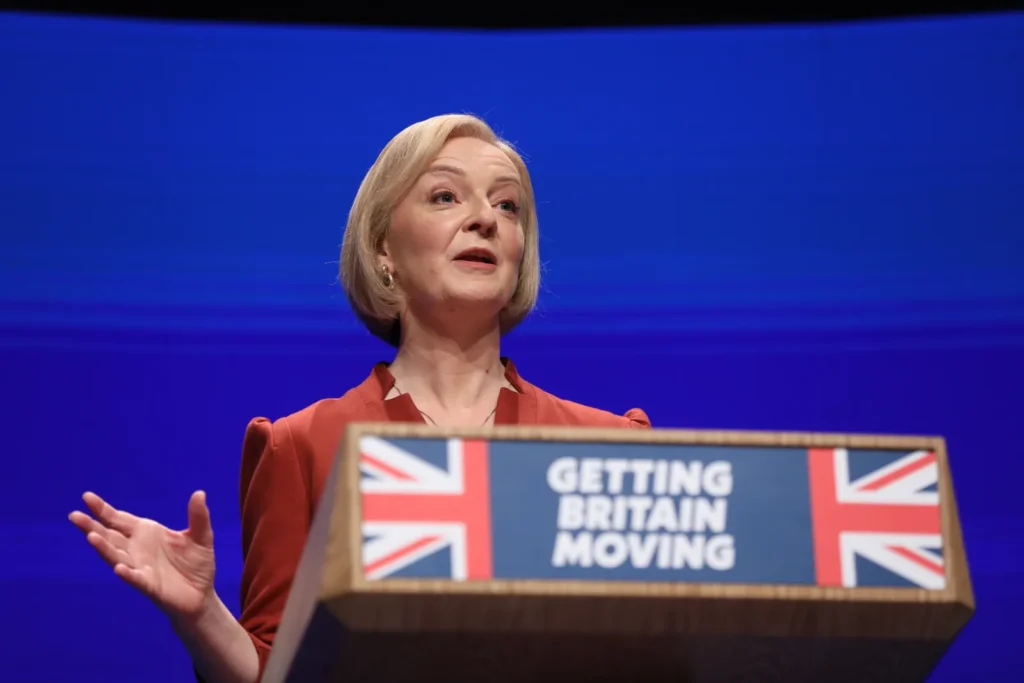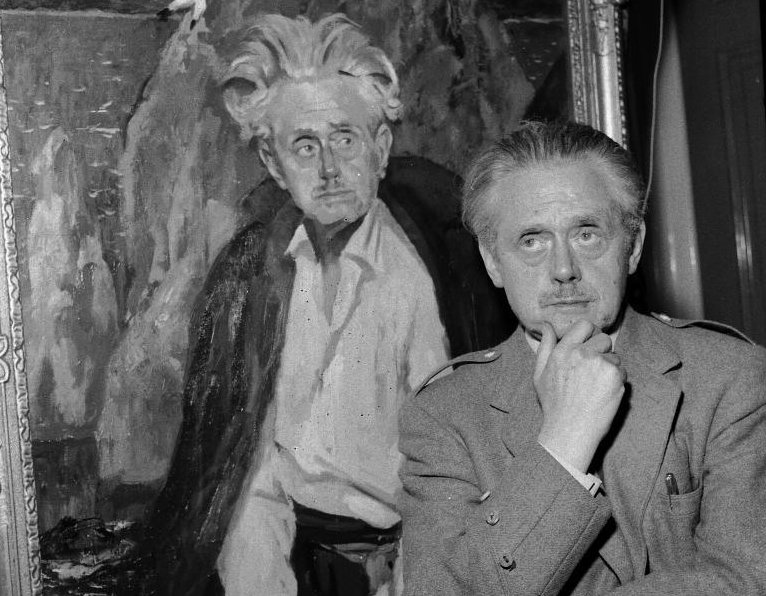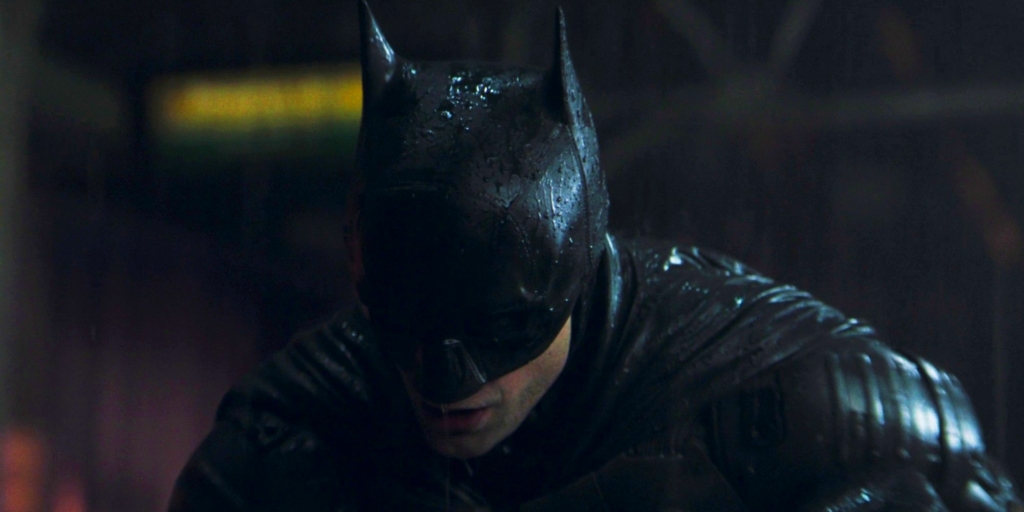The Long, the Short and the Appalling
On Ukania’s Zombie economics, Batman and Macdiarmid. THE LONG, THE SHORT AND THE APPALLING: From The Province of The Cat by George Gunn.
A long lived monarch dies. A short lived Prime Minister quits. An appalling constitutional, political and economic mess continues with no way out in sight. Welcome to the play, film, novel no-one wants to be in, to see or to read – “The Long, The Short and the Appalling” – in which ancient grudges and new mutinies mingle as civil blood makes civil hands unclean, set in fair Ukania where we lay our scene.
The principal characters in this comically underdeveloped tragedy are not Romeo and Juliet but City hedge-fund burglars, pension fund robbers and commodity market grifters dressed up as politicians and their poorly scripted Scottish public placemen doubling as secret agents, spies and saboteurs, plus a chorus of rude mechanicals made up from ex-footballers, TV presenters and minor royals cadging for a role. They duck and dive across the stage of your life. Flicker like meanings ghost on the screen of your eye. Sink like a phonemic stone in a sea of plotless ink that passes for news. Does this sound like something you would pay money for? No, I thought not. Unfortunately, all of us have to live out this anti-drama. Not so much theatre macabre as unreality TV. So far, so bad.

For Scots “The Long, The Short and the Appalling”, or at least its prelude, has been fifteen years in the making and the only certainty is that the production will flop. The pity is that whatever welcome and timely damage it does to the Conservative party, who are its producers, the rest of us, who have been reduced to mere spectators, are condemned to live and relive the same disastrous shit-show. Day after dangerous day.
In 2007 the SNP took power in Edinburgh and we have been slouching towards independence ever since. “To change an nation old into a nation new, into another world.” That was the task Hugh MacDiarmid set himself in “Lucky Poet”. We, on the other hand, seem to be finding it hard to turn the falling pieces of a failing state – Ukania – into the scaffolding of an independent nation fit for people to live in. There is plenty of renewable energy but where is the renewable politics? Making a new country out of the broken relics of an old empire is difficult, of hat there is no doubt. But human beings went to the Moon on less computer power than is in the average smart phone. Nations are born from collective desire and political will. It can be done.

As Ukania government ministers come and go at an alarming rate I, at least, am growing impatient. MacDiarmid was literally boiling with rage at the delay in achieving Scottish independence way back in 1943 when “Lucky Poet” was first published, in the middle of a calamitous World War, when nobody was listening. I would like to think that the majority of contemporary Scots are also growing impatient. We have generally in our political desires, if not in our day to day lives, moved beyond the historic purpose of the SNP, however loyal we were to it in the past. This is not to waste time criticising the SNP for being something which they currently are so obviously not, but it is important to consider that the strengths and weaknesses of a criticism which shows only how to judge and condemn the present, but not how to comprehend it, is of no use. A nation of dwarfs and boors is doomed, as MacDiarmid would have it. Recent and on-going events at Westminster are proof enough of this. We desire action. We desire change. We do not get it. Due Process has proven not to be a good friend to Ambition and her younger sister Necessity.
As Rishi Sunak begins Austerity 2 an increasing majority of people in Ukania are finding that life is increasingly becoming not worth living. They struggle with poverty and survival rather than enjoying their humanity and the sensory and psychological pleasure of developing their intellectual capabilities and capacity for empathy, which should be the time-fruits of their labour, their life. Not this grind and anxiety. For most people in Ukania the fullness of their life is being denied to them. Instead this weed-crop of Tories enrich themselves while suffocating the economic potential of the rest. Way back in the 6th century BC Heraclitus said that to live is to fight for life. So here we go again.
Exiled to Whalsay in 1933, penniless, ignored, Hugh MacDiarmid wrote that, “The poet must sing things until they become.” MacDiarmid was a Makar – a poet who believed that a new, better life is possible created through spontaneous imaginative realities. Waiting on the findings of the Ukania Supreme Court would not be Hugh MacDiarmid’s chosen path to freedom. “What does it matter what foul rubbish these high heid-yins believe?” he would, quite reasonably, ask. It often tickled MacDiarmid that his and Valda’s cottage, or bod, was in Sodom, meaning “south home”, which a corruption of the old Norse Suðheim. I have scoured the map of Whalsay and, alas, can find no Gomorrah.

What will destroy our lives, undoubtedly, will be the rich enriching the rich politics of Rishi Sunak’s government. At this the time of year when the clocks go back (to the 1820’s?) and when the dead come out of the ground to walk amongst the living at Samhain (or Halloween) it is, I suppose, appropriately deadly that we are subjected to the economics of zombies. Margaret Thatcher sucked the life out of Ukania. Tony Blair modified it into an Armani-zombie model fit for the elite. George Osborne emerged from the crypt of the Eton Mess to inflict more horror on the masses. Brexit made everybody a zombie and Boris Johnson wandered around his time in office drunk on the bad wine of Covid and thousands died due to his chronic, fatal inaction and corruption.
The current Tory zombie class war in which they give more money to already rich people is based on two lifeless ideas. The first is that rich people will invest their money as capital in productive Ukania enterprises. The problem with that is that manufacturing is in the graveyard and the rich invest in property or stash their loot in offshore accounts. The prospect of the money that has just been given to the wealthy being invested in Ukania assets is virtually nil.
The second lifeless idea is that rich people will boost the economy by buying goods and services in Ukania. The reality is that it is poor people who spend whatever money they have and they spend it locally. They do not have a choice. The rich have a choice and they do not. To boost an ailing economy it is sensible to give money to the poor. That is the only phantom that alarms the Tory horses. The wealthy are always defensive about their wealth but poor people are never defensive about their poverty.
Until Scotland becomes independent we are doomed to be haunted by these undead ghouls and the zombie economics we did not vote for.
How long will we watch Ukania falling off a cliff? How short is the road to ruin for Scotland if we do not act, now, to save our nation? How appalling are these questions? Is this the story we want to be telling ourselves? “The Long, the Short and the Appalling” is not a play I want to be in. Or see. But what story do we really want to tell? The great Allan Moore, the author of “Watchman” and much more, had some interesting things to say about this search for a believable narrative form as he said “goodbye to comics”. He told The Guardian (7.10.22)
“I said round about 2011 that I thought that it had serious and worrying implications for the future if millions of adults were queueing up to see Batman movies. Because that kind of infantilisation – that urge towards simpler times, simpler realities – can very often be a precursor to fascism. That process of fragmentation and analysis and reduction has probably gone as far as it can, in that we have fragmented societies, we have fragmented philosophies. Individually, we have fragmented psychologies. We could do worse as a species than to try and put that dismembered corpse back together.”

It is exactly the task facing the broad Yes movement in the coming months and years. We must declare that we will not be ruled by the Scotland Act of 1998, which is as much in the way of a constitution as there is on offer. The story we have to tell ourselves must say that the Westminster Parliament has no authority to make laws which constrains the right of self-determination of the people of Scotland and that the Scotland Act must not be used to stop the Scottish Parliament holding an independence referendum and that it is, as a result, legal. We must assert that we will not be bound by the Supreme Court of Ukania (or any other state) and that compliance with laws of Ukania is not necessary for Scotland to gain her independence.
That, of course, is the play I would write, not “The Long, The Short and the Appalling.” I realise that, just as MacDiarmid did on Whalsay in the 1930’s and ‘40’s, I live in a bubble of fantasy, as much as I desire to burst the fascist fantasy bubble of those who believe that just because Rishi Sunak is the richest Prime Minister since 1894 and Archibald Philip Primrose, the 5th Earl of Roseberry, that he must be “good with money”. For those believers I offer this bad news: capitalism is the fundamental cause of oppression in the world and cannot be reformed. You can warm your hands on the burning forests if that takes the chill from your heart. And while the heat sinks in it would be wise to remember Karl Marx’s dictum of 1852,
“Men make their own history, but not as they please, in conditions of their own choosing, but rather under those directly encountered, given and inherited.”
In other words, waiting for things to get better, for the “right time”, is an illusion. In Ukania things will never get better and there is no “right time”, except now. Today. Act now and things will get better – in an independent Scotland – because the decisions we make and will have to live with will be our own. The solutions to our problems will be of our own devising.
“The Long, The Short and the Appalling” is a bad play. It has a primitive plot in three scenes, or should I say, three mistakes. Scene One: the Tories lie their way into power. Scene Two: we put up with the Tories in power. Scene Three: we forget about the Tories in power. Three steps to oblivion. Right now, I suggest, we are watching Scene Two. Theatre, just like politics, is merciless, there is no room for error, or for waste.
The “laws” of classic Aristotelian poetics sets out that tragedy is one individual building their own doom. They are blind to their own actions and choices, which leads to the tragic chain of consequences. The truth is revealed to them when it’s already too late to do anything about it. In many ways “The Long, The Short and the Appalling” is a comedy. In comedy “laws” are deconstructed, subverted and revolutionised into liberty. In Scene Three the Scots have to awaken from their dream and undermine the foundations of accepted civic procedure. Tae hell wae yer Supreme Court!
At the present moment Scotland lives simultaneously in several different centuries and in different times – ancient/unborn, autonomous/shackled and devolved/retained. It is no wonder people are depressed and confused. Yet at moments of cataclysm and upheaval, poetry – which is the language of the theatre – becomes popular as the expression of the people’s hope, aspirations, and identity. In such moments, poetry is the most expressive voice of freedom. MacDiarmid believed that and I believe that. As a result, I remain optimistic that the Scottish people will reclaim their story. After all, we are the only ones who can do it.
©George Gunn 2022

Ah, but ….. help is on the way!! DRoss is to meet Mr Sunak to decide what is to be done about Scotland and Sir Two Flags is to visit Dundee in the company of Union Jack Suit Murray and Ananias Sarwar to ‘build on “Labour’s surge in the polls”.
As far as I can work out the ‘surge’ has not been seen in Scotland, but we will just have to accept what TwoFlags deigns to give us, and that is not worth a hill of beans.
As Mr Gunn says, there are further acts in this drama to come, with more bodies and wreckage on the stage than the concluding scenes of MacBeth or Hamlet.
Why did the SNP walk out of the House of Commons when Kenny MacAskill got up to speak re the Eastern Link undersea cable and the benefits to Scotland? Shame SNP you failed Kenny who was standing up for our country….the English MPs also went out with the SNP. Nice to see them hand in hand…..grrrr! My teeth were gnashing at such betrayal by the SNP….
So glad I kicked the SNP into the long grass and joined ALBA.
The Scottish people are being betrayed.. If you are a member of the SNP..consider their actions…
Glad you are optimistic George..I’m not.(Excellent article)
For Scotland!
My support for the SNP was already waning, but ‘
‘Why did the SNP walk out of the House of Commons’ That was the last straw!
Why did the SNP get up and walk out on a guy who got up and walked out on the SNP? Hmmmm …. tricky one.
The fact is, they probably didn’t. It wouldn’t have crossed their minds to sit and listen to a question that was for the Tories to answer and did not require their presence to be made. The SNP are under no obligation to hold Alba’s hands in Westminster. Especially hands that had given them the finger after being elected under the SNP banner, and whose supporters continue to attack them to the exclusion of any attempt to actually advance the cause of Scottish independence.
“We must assert that we will not be bound by the Supreme Court of Ukania (or any other state) and that compliance with laws of Ukania is not necessary for Scotland to gain her independence.”
So what exactly are you suggesting we (by which I mean: each one of us personally; the Yes movement; and our political leaders) do to convince even a fraction of the 50% of Scots who have yet to be persuaded of the merits of independence? Do you believe that this kind of tub-thumping rhetoric will help?
I watched a clip earlier where Truss asserted that the SNP were spending the entirety of their budget on the ‘independance campaign’ Ridiculous I know, but I wish they’d do something, anything!
Independence will only happen if a sustained majority of people in Scotland want it to happen. Issues of process are secondary: it’s the relative strength of the political alliances in play that really count. Simply giving vent to our frustrations is far more likely to weaken the movement rather than to build those alliances and that majority for independence.
It helps, perhaps, to think of other struggles, and to learn from them, even if our circumstances here in Scotland are entirely different. The long struggle against Apartheid comes to mind, for example. There, frustrations also emerged against the cautious alliance-building strategy of the ANC, which was ultimately successful.
The ANC’s cautious alliance-building strategy was ultimately successful in tandem with the terrorist and civil disobedience campaigns that made the apartheid regime ultimately unsustainable. ‘Is the SNP doing enough to make the current unionist regime in Scotland unsustainable?’ is surely the question the independentistas should be asking. A little less girning, a little more action.
The ANC regime in S. Africa is highly corrupt, but sustainable.
I think that poets are responsible for the state of Britain, and they must be publically held accountable.
I agree insofar that it’s the work of poetry to forge the meanings by which things like ‘the state of Britain’ are constructed. If language is the house of being, then it’s the poets who furnish us with our building materials.
Mind you, as homo faber, as agents rather than victims, we all bear responsibility for the state we’re in.
I think Aristotle wrote that many poets are good at complication but bad at resolution. In the Poetics. Maybe Chapter 8. What else did Aristotle write? “The poet in person should say as little as possible.” Chapter 10?
What’s preventing a poet from being complete pillock, a boring narcissist, or an actual Fascist? The Italian Futurist art movement included poets among its founders and veered quickly into Fascism. https://en.wikipedia.org/wiki/Futurism Surely they too believed “a new, better life is possible created through spontaneous imaginative realities”.
I watched a couple of modern movies from China and India recently, where the British were, very plausibly, cast in their accurate historical roles as evil, violent and corrupt. I wonder where ‘Captain Gordon’ hails from? It is a pity that such honesty is too rarely shown by artists here. The tension between the external and internal views of the British Empire may end it without any help from Scotland.
Shakespeare and cohorts were writing about toxic court politics, the kind that goes on at Westminster and the Palace today, corruption in high places and top-job exploiters getting rich (“Landlord of England art thou now, not King”: Richard II 2.1). There is a fascinating account in Janet Clare’s book ‘Art Made Tongue-tied by Authority’: Elizabethan and Jacobean Dramatic Censorship. When the Scots came to Court with James, they censored the anti-Scottish play Eastward Ho, but were apparently more relaxed about personal jibes than Elizabeth). Yet maybe their audiences were smarter than ours, in that they expected to be able to see the gold through the wax that the playwrights had smuggled past the censors, the directors designed or the actors improvised. If modern British audiences, for all the sabotaging of Shakespeare that goes on in production, cannot see that the plays amount to a forensic condemnation of the politics of hereditary monarchy and dynastic oligarchy, that does not bode well for the level of political consciousness in these lands.
Modern poets hold Aristotle’s poetics in much disdain. He is himself the most unpoetic of writers, which would suggest he has no lived experience of poesis, which is crucial to poesis itself, which as a praxis rather than an object can only be known in and through the doing of it. That existentialist critique of post-socratic theory of knowledge in general holds especially for Aristotle’s poetics in particular. It’s completely wrong-headed.
Another mistake Aristotle makes in his poetics is that he reduces poetry to its language and language to its least poetic element, narrative, and then narrative to crudely moralistic readings. This mistake set European poetry back centuries by amplifying its descriptive value over its expressive function. It was only when European readers discovered non-European poetry in the later 19th century that this mistake was rectified.
The greatest scandal of Aristotle’s poetics, however, is that it marks out poetry as a form of imitation rather than creation, as a way of recording and representing facts rather than creating value, measuring the worth of a poem in terms of its effectiveness as a vehicle of communication rather than in terms of its own intrinsic value as an end in itself. Since their liberation from Aristotle’s poetics, poets don’t make poetry to tell a story or to paint a picture or communicate information or feelings or create ‘a new, better life… through spontaneous imaginative realities’; modern poets in the manner of Eliot, MacDiarmid, Pound, etc. and their successors make poems that (like those they found in non-European literatures and oratures) are their own object. That’s modernism for you.
And modern poets make such poems in defiance of and in resistance to the commodification of art under capitalist relations of production, by which the artefacts of that production are commensurable (measurable by the same standard) and therefore mutually exchangeable in their value. Aristotle’s poetics, by reducing an artwork to its instrumental value, makes it something that can be bought and sold for profit.
Aristotle is one of those guys whom, for the sake of his fateful aesthetic theory, I’d gladly dig up just so I could throw stones at him. He has a lot to answer for.
(BTW Two of the three modern, anticapitalist poets I mentioned above were fascists, and the third – T.S. Eliot – was a notorious antisemite. Heidegger, another anticapitalist, whose aesthetic theory is arguably the most complete antidote to Aristotle’s, was a card-carrying Nazi. Make of that what you will!)
Thank you for the writings George. I always enjoy your stuff.
Thanks Bella, also.
(Not much of a comment i know. Keeping ma powder dry. Nov 5th.)